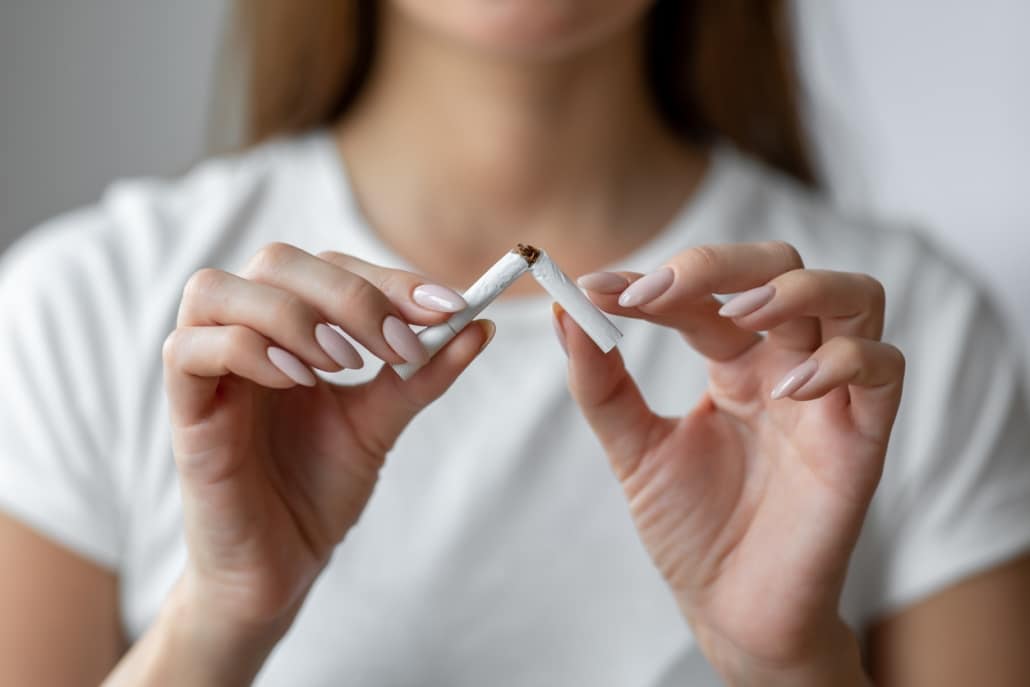Smoking doesn’t harm your lungs and heart—it can seriously damage your oral health. From unsightly stains and persistent bad breath to severe gum disease and life-threatening oral cancers, the toll tobacco takes on your smile is alarming. Understanding these effects and taking proactive steps can make a huge difference in your long-term dental well-being.
How Smoking Affects Your Oral Health
1. Tooth Discoloration
Nicotine and tar in tobacco products are notorious for staining teeth. Even in small amounts, these substances cling to the enamel and lead to yellow and brown stains. According to the RMI University of Health Sciences, over 80% of long-term smokers experience some form of extrinsic tooth staining.
2. Gum Disease (Periodontal Disease)
Smoking is a major risk factor for gum disease. It interferes with gum tissue cell function, making smokers more susceptible to infections and reducing blood flow to the gums. According to Better Health Victoria, smokers are up to six times more likely to develop gum disease than non-smokers.
3. Tooth Loss
Periodontal disease, if left untreated, can lead to tooth loss. Adults who smoke are twice as likely to lose their teeth compared to non-smokers (CDC). Chronic gum inflammation weakens the supporting bone, causing teeth to loosen or fall out.
4. Delayed Healing After Dental Procedures
Due to restricted blood flow and oxygen delivery, smokers experience slower healing after procedures like tooth extractions, implants, and cleanings. They’re also more prone to complications like dry socket after extractions.
5. Chronic Bad Breath and Diminished Taste
Tobacco causes persistent halitosis and dulls the taste buds. Many smokers find food less flavourful and suffer from a dry mouth, which exacerbates bad breath and bacterial growth.
6. Oral Cancer Risk
Smoking significantly increases your risk of developing oral cancers—including those of the lips, tongue, cheeks, and throat. Smokers are up to six times more likely to develop oral cancer than non-smokers, and the risk is even higher when combined with alcohol use.
What About Vaping and E-Cigarettes?

While marketed as safer alternatives, vaping and e-cigarettes still pose oral health risks. Research shows that:
-
Nicotine still restricts blood flow, affecting gum health.
-
Vape aerosols irritate oral tissues, increasing the risk of sores and infections.
-
Vaping contributes to dry mouth, a known contributor to bad breath and decay.
The Benefits of Quitting Smoking for Oral Health
Quitting isn’t easy—but it brings immediate and long-term rewards, especially for your smile:
-
Whiter teeth and fresher breath
-
Improved gum health and reduced bleeding
-
Faster healing from dental procedures
-
Lower risk of oral cancers
-
Restored taste and smell
Even after years of smoking, your oral health can rebound with proper care and cessation support.

Tips to Protect Your Smile as a Smoker or Ex-Smoker
1. Step Up Your Oral Hygiene
Brush at least twice daily with fluoride toothpaste
Floss daily to remove debris between teeth
Use an antibacterial mouthwash to fight bacteria and freshen breath
2. Schedule Regular Dental Visits
Visit your dentist every 6 months for check-ups and cleanings
Let your dentist know you smoke so they can monitor for early signs of trouble
3. Consider Professional Whitening
Ask your dentist about in-office teeth whitening or prescription-strength options
Over-the-counter whitening is usually ineffective for heavy tobacco stains
4. Use Smoking Cessation Resources
Seek local support groups or helplines
Consider nicotine replacement therapy (NRT)
Speak with your dentist or physician about a cessation plan tailored to you
Conclusion: Don’t Let Tobacco Rob You of Your Smile
Smoking does serious damage to your oral health—but you’re not powerless. With the right support and dental care, it’s possible to:
Prevent further damage
Restore your gums and teeth
Regain confidence in your smile




